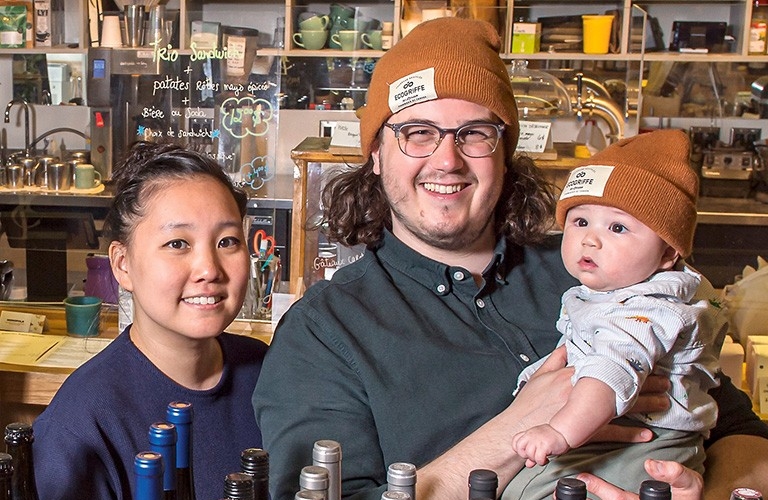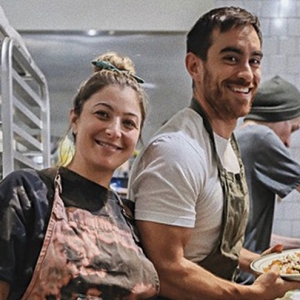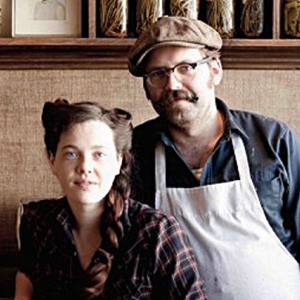Raegan Steinberg, BA 08, of brunch spot Arthur’s Nosh Bar in Saint-Henri, was equally concerned for her staff.
“Restaurants are the only places where people actually remove their masks,” she points out. Many clients were patient and understanding, but from others, “there was a serious lack of respect.”
Waits for tables were long and people got frustrated and were sometimes rude. Some wouldn’t put on masks to go to the bathroom; others would just cover their mouths by pulling up their shirts.
Steinberg had been scheduled to open a fine-dining restaurant the week after the pandemic hit. Ineligible for government help, her business partner Shah Kashizadeh thought to remake the space into a fried-chicken restaurant and dubbed it Bucky Rooster’s. It’s proven popular.
Steinberg feels fortunate to still be in business and to be able to spend time with her mother. She’d previously lost her father to cancer and has learned to never take health for granted. “Just to get this time as a family has been special because no one’s been sick. I feel really lucky in that sense.”
 Co-owners of the lively Monopole in the Cité Multimedia, Ngoc-An Trinh, BFA 12, and husband Gabriel Gallant.
Co-owners of the lively Monopole in the Cité Multimedia, Ngoc-An Trinh, BFA 12, and husband Gabriel Gallant.
 Raegan Steinberg, BA 08, and her husband Alex in the kitchen of their restaurant Arthur’s Nosh Bar in Saint-Henri.
Raegan Steinberg, BA 08, and her husband Alex in the kitchen of their restaurant Arthur’s Nosh Bar in Saint-Henri.
 Colin Perry, BA 03 (right) is owner of the Dinette Triple Crown in Mile End.
Colin Perry, BA 03 (right) is owner of the Dinette Triple Crown in Mile End.
 Jon Cercone, BA 10
Jon Cercone, BA 10